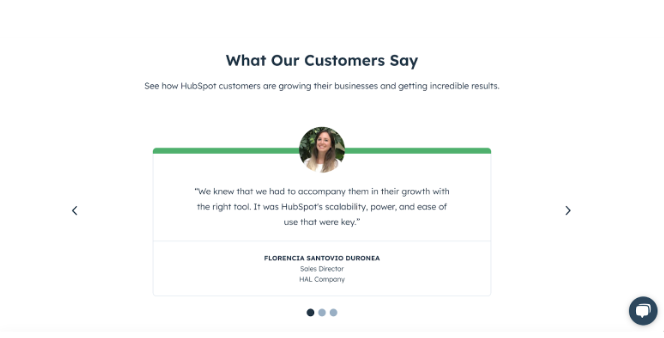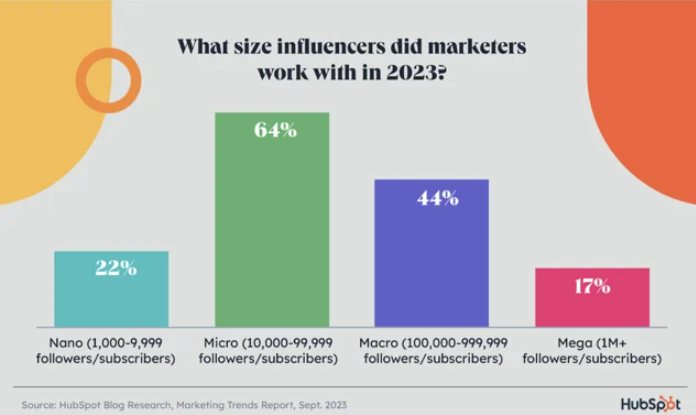As a small business, you can understand how crucial it is to stand out from the competition. Here's where branding comes into play. The good news is that building a strong brand yourself doesn't have to cost a lot of money. It simply requires dedicated effort and time.
In case, you’re still worried that your budget and resources may not be as effective as your larger counterparts. So, we’ve come up with some branding tips for small businesses that’ll guarantee customers will notice you.
The Importance of Branding for Small Business: Should You Do It?
According to a HubSpot study, 50% of buyers are inclined to purchase from a business whose logo they can quickly identify. Moreover, the same study showed that 39% of marketers thought that reaching new audiences and raising brand awareness are the main objectives of a social media strategy.
So, we can already assume how crucial branding is for setting up your small business.
If you have a clearly defined brand identity, customers will find it easier to identify your business among competing brands. Once your customers know they can rely on you, this gradually leads to them developing a sense of trust.
With these branding tips for small businesses or marketing promotions, you can eventually boost sales and gradually increase revenue. However, if your clients start to lose their trust, your marketing campaigns may fail miserably. This is because it's too easy to make a branding error that can negatively impact your little business.
7 Branding Tips for Small Businesses You Should Be Following
As technology advances, small firms are facing more and more competition. For this reason, now more than ever, having a strong
brand identity is crucial.
But branding is more than just having a social media presence, making a website, and developing a logo. Let’s take a look at comprehensive branding tips for small businesses that consider all facets of your company.
Establish Your Brand Values
The first step in developing a successful branding strategy for any small business is to identify the purpose of your brand. So, before moving on to creating logos or deciding on brand colors and logos, consider asking yourself the following questions:
- What does your brand aim to do?
- Who is the target market of your brand?
- What are the goals and/or missions of your brand?
- Why does your brand stand out?
Once you have a clear idea of what value you add to the customer’s lives, you can then move on to putting yourself in their shoes. This will help you create a logo design that truly represents your brand’s identity and resonates with your audience.
Get into the Customer Mindset
Having a well-defined target market allows for better communication, improved product and service development, and higher levels of customer satisfaction.
If you're not considering and prioritizing your customers in this manner, you really should be. Nowadays, customers now join brands rather than merely buying from them. Your consumers look for a feeling of purpose and community, which translates into who they identify with and, in turn, who they choose to do business with.
Now, creating your ideal customer profile (ICP) can be done through market research, surveys, and client calls. We’ve also shown an example of what an ICP can look like. Once you’re sure of what your audience needs/ wants, your brand messaging and marketing initiatives can be more effectively tailored to them.

Look at Your Competition
After you are set on your brand’s mission and what your target market wants, it’s necessary to find out what the competitors in the market are doing. This will allow you to set your brand apart and pinpoint areas for improvement.
But remember these pointers when attempting to do a competitor analysis:
- Never attempt to imitate a well-known brand in any manner
- Do not compare yourself to others; every business has its own goals.
- Stay loyal to your vision and drive unless you want to disappear into the sea of other small firms.
Keep in mind: that your unique selling point is what sets your company apart from the competition so it should be integrated into every aspect of your branding strategy. However, take a look at industry trends to help determine what is/ isn’t appealing to your target market, which will help you tailor your brand identity.
Bring in Some Consistency
Small businesses take some time to create frameworks, but they don’t end up spending much time putting them into practice. This is why it’s necessary to maintain a consistent brand voice and messaging from the very beginning.
Furthermore, since you are still relatively unknown, it is difficult to trust a company that is continuously shifting its perspective. Regardless of where you’re marketing your product or yourselves, you should communicate the same thing over and over again.
Slowly, people will start to pour in when they sense that you’re staying true to yourselves. Customers find this because it relates to personality and character, which in turn lets you gain respect and legitimacy.
Add a Pop of Personality
People respond to stories or a cause, that’s how small businesses can make an impact. It’s important to explain to your clients what makes you different and why should they pick you. However, make sure that you don’t go overboard with the narrative. As we said, you shouldn’t forget about your primary goals, brand vision, and what makes your brand unique.

One way to stand out from the crowd is to pick a memorable brand name that isn’t too elaborate or showy. You can also focus on creating visual elements like logos, and pick colour schemes that’ll make a statement. Even when you’re developing email marketing campaigns, make sure to add a personal touch to your communications.
Leverage Social Media as Much as Possible
With social media being the primary way of connecting with your customers, it’s a no-brainer that you should create an online presence by having a website and social media accounts.
Remember to refer back to your established brand guidelines while creating your website blog posts or choosing content for your social accounts. It may seem laborious to verify and recheck your post or web page, but in the long run, you’ll be the one benefiting from it.
Once your posts are live, don’t forget to interact with your customers through comments and reactions. This way, you can build a strong relationship with your followers and strengthen client loyalty. As a result, there is a greater chance of them recommending your product or service to someone they know.
By keeping an eye on your social media accounts, you can also use social listening to learn what your customers are thinking. This way, you gain a deeper understanding of your audience by finding out how they perceive your brand.
Focus on Customer Experience
How you’ve established a connection with a customer is what defines your branding as well, not just your logo, marketing tactics, or other techniques. The most crucial component of your brand is the reputation you build and the feedback your customers are putting out into the world.
Make sure to inject the principles you want to associate with in everything you do, from the very first interaction to the very last. As a result, it’s crucial to maintain an excellent rapport with them and look for ways to enhance their satisfaction such as using chatbots like Intercom or others tools for faster response times.
You should provide incentives to your customers, such as loyalty programs and exclusive discounts, to encourage them to use more of your services. Even if it's just a small purchase, most people enjoy being rewarded for something they did.
You’ll know you're doing something right when you see your clients sharing their good experiences in reviews, referrals, and client testimonials as you can see below.

Bonus Tip: Think about Partnering Up
Leverage Affiliate or Referral marketing. Your customers are far more likely to trust you and give you their business if you introduce them to a brand or person they already know and trust.
In the case of partnering up with another company, you should make sure that you’re serving complementary products or services. For example, take TacoBell’s Doritos Taco: TacoBell is more of a restaurant chain, whereas Doritos is a classic chip brand. Although both fall under the same industry, they leveraged their resources to create a product that brought their target audiences together.
If you’re thinking of partnering with influencers that support your brand's values look for people with followers from your target demographic and who are active on industry-relevant social media channels. Don’t just blindly ask them to promote what you’re selling, make sure to build meaningful connections so that the audience trusts you and your influencers. You can see from the Hubspot research that you need to find the influencer for your niche:

Now that you’ve gone over the branding tips for small businesses, you can start formulating your brand strategy how you like. But make sure to monitor and analyze your results for your branding efforts so you can tweak it for the best possible outcome.
Should You Consider Focusing on Branding Strategy as a Small Business?
In short, a small business needs to consider focusing on branding. Although you can lack the resources to compete with larger companies, understanding your brand, your offerings, and your target market can lead them to success.
Building an effective brand strategy affects every facet of your company and connects you with your target market. So to establish your brand identity, you should try to better understand your audience, craft a voice for your business, add some personality, and always remain true to yourself and your business values.
With these branding tips for small businesses, you can build a powerful brand for your small business. However, branding is a continuous process so make sure you’re up to date on all the trends.


 Table of Content
Table of Content










